The 2018 NFL draft will be here in a few short weeks, and teams will select players they hope will be become solid contributors or maybe even Hall of Famers.
However, some of those players wash out and leave every team scratching their head at the end of every season.
Here’s a closer look at the biggest boom and bust picks for every NFL team over the past 10 seasons:
AFC East | AFC North| AFC South | AFC West
NFC East | NFC North | NFC South | NFC West
AFC EAST
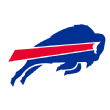
Buffalo Bills
Best pick: S Jairus Byrd. The second-round pick (42nd overall) in 2009 had 22 interceptions and made three Pro Bowls in five seasons in Buffalo before signing a huge contract with the Saints in 2014. He is one of five players drafted by the Bills in the past 10 seasons to make the Pro Bowl, along with defensive tackle Marcell Dareus, cornerback Stephon Gilmore, running back C.J. Spiller and center Eric Wood.
Worst pick: QB EJ Manuel. Among the other choices here are defensive end Aaron Maybin, the No. 11 overall pick in 2009 who started one game and did not make any sacks in two seasons, and wide receiver Sammy Watkins, whom the Bills traded two first-round picks to acquire as the fourth overall selection in 2014. But Manuel, a first-rounder in 2013, is the pick because he had the NFL’s second-worst Total QBR in his brief tenure as Buffalo’s starter, from Week 1 of 2013 through Week 4 of 2014. The Bills reached for Manuel in the draft (16th overall) and came away with one of the biggest first-round quarterback busts of the past decade. -- Mike Rodak
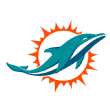
Miami Dolphins
Best pick: Reshad Jones, 2010 fifth round (No. 163 overall). What has unfolded with Jones is the ideal team-building scenario: Select a player with some unique traits in the fifth round, develop him and then keep him around by extending his contract as he blossoms into one of the best players in the NFL at his position. While other picks could warrant consideration to be the Dolphins’ best -- such as cornerback Xavien Howard (2016 second round), defensive end Olivier Vernon (2012 third round), center Mike Pouncey (2011 first round), tight end Charles Clay (2011 sixth round), linebacker Koa Misi (2010 second round) and receiver Brian Hartline (2009 fourth round) -- Jones’ longevity and production stand out most.
Worst pick: DE Dion Jordan, 2013 first round (No. 3 overall). When trading up to the third overall pick, the Dolphins didn't expect to have their pick start just one game for them and be gone after two years. Jordan flamed out quickly and was given a yearlong NFL suspension in 2015 because of drug and alcohol abuse. The Dolphins gave up the 12th overall pick and a second-rounder (42) to make the jump. If there is one silver lining looking back at the miscue, it's that the cost to move up to No. 3 would be much greater today (the Jets gave up the No. 6 pick and three second-round picks to jump to No. 3). -- Mike Reiss
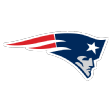
New England Patriots
Best pick: Rob Gronkowski, 2009 second round (No. 42 overall). Any time a team can draft a transcendent player who will be in the Pro Football Hall of Fame conversation, it is obviously good business. What made the selection of Gronkowski so impressive was that he wasn’t viewed as a sure thing coming out of Arizona, and some teams had injury concerns with his back. But the Patriots felt comfortable taking the risk early in the second round, and concerned that the Ravens might take him at No. 43, they traded their No. 44 pick and a sixth-rounder to leapfrog Baltimore to ensure they landed Gronkowski. That type of draft-day maneuvering has been a Bill Belichick staple and this was one of his best.
Worst pick: DT Dominique Easley, 2014 first round (No. 29 overall). This was the shortest stay for a first-round draft pick in Belichick's tenure, as Easley lasted just two seasons before he was cut. The team's hope was that he would be a disruptive interior pass-rusher, and they took a risk hoping that his knee problems at Florida wouldn't be an issue in the NFL. Easley played in 22 regular-season games (three starts) for the Patriots, notching three sacks. And he was a handful for the team's coaching staff from the standpoint of fitting into the team's culture. All around, it just wasn't a good fit. The 6-foot-2, 273-pound Easley has since moved on to the Rams, where he has been a situational pass-rusher and missed the 2017 season with a knee injury. -- Mike Reiss
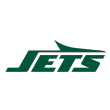
New York Jets
Best pick: DE Muhammad Wilkerson. Not a lot of strong candidates, as the Jets drafted poorly from 2008 to 2015. The best has to be Wilkerson, their first-round pick (30th overall) in 2011. He started six seasons and made one Pro Bowl before playing his way off the roster after a lackluster seventh season in 2017. At one time, he was considered part of the team's foundation, but he went south after signing a huge contract extension. Wilkerson gets a slight edge over DT Sheldon Richardson (first round, 2013), who is now with his third team.
Worst pick: CB Dee Milliner. After trading star Darrelle Revis a week before the draft, the Jets were desperate for a corner and targeted Milliner as the heir apparent with the ninth overall pick in 2013. What were they thinking? Milliner, who had five surgeries during his college career at Alabama, was rarely healthy for the Jets. When he was on the field, he lacked the quick-twitch explosiveness and hip flexibility necessary to play in a man-to-man scheme. The Jets cut him before the 2016 season and he never signed with another team. Total career: 21 games. -- Rich Cimini
AFC NORTH
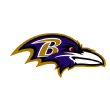
Baltimore Ravens
Best pick: QB Joe Flacco. He became the Ravens' only franchise quarterback and earned Super Bowl MVP honors after the 2012 season. Flacco hasn't lived up to his big-money contract over the past five seasons but still ranks among the best postseason quarterbacks and enjoyed one of the best playoff runs in NFL history (11 touchdowns and no interceptions) during the title run. If Baltimore didn't select Flacco with the No. 18 overall pick in 2008, the Ravens likely don't have a second Lombardi trophy.
Worst pick: LB Sergio Kindle. The Ravens' first pick in the 2010 draft managed one tackle in three games played. Baltimore used the No. 43 overall pick on Kindle despite numerous red flags. The Ravens were banking on Kindle becoming an elite pass-rusher after he recorded 16.5 sacks over his final two seasons at Texas. But Kindle fractured his skull while falling down a flight of stairs four days before his first training camp and never was the same. -- Jamison Hensley
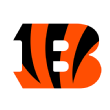
Cincinnati Bengals
Best pick: WR A.J. Green. The No. 4 overall pick in 2011 has been everything the Bengals wanted and more since they selected him, making it to the Pro Bowl in each season of his career to date. Green ranks No. 2 in franchise history in receptions and receiving yards and is third in receiving touchdowns. He likely will become the franchise leader in all those categories before he retires.
Worst pick: LB Keith Rivers. Although Rivers' career started off well, his rookie season ended after seven games due to a blindside block by Steelers receiver Hines Ward that broke his jaw. Rivers, the No. 9 overall pick in 2008, lasted just three seasons in Cincinnati, missing his final season there because of injury before he was traded to the Giants. -- Katherine Terrell
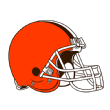
Cleveland Browns
Best pick: CB Joe Haden. This is not an easy task. The Browns have no players left on the team from the drafts from 2008 through 2014. The only first-round picks they have remaining are from 2016 and '17. Haden had several very good seasons in Cleveland after being taken seventh overall in 2010. Injuries limited his playing time in his final two seasons in Cleveland. In his best years, Haden could regularly handle the opposing team's best receiver. A close second: Myles Garrett, who raised zero concerns about whether he was worthy of the top pick one year ago or that he will not develop into a standout NFL defensive end.
Worst pick: QB Johnny Manziel. Of many options, this one stands out because it set the team back so far. Heading into 2014, Joe Banner and scouts had done serious work on college quarterbacks and decided Derek Carr and Teddy Bridgewater were the best of the bunch. Banner was relieved of duties a few months before the draft, however, and by the time the 22nd pick rolled around, Manziel was the last player on the team’s board with a first-round grade. How this happened remains a mystery. Manziel's personal issues affected him and the team, yet the Browns selected him and forced him on the field before he was ready (Manziel admitted this himself). They then stuck with him through a second season, which ended with Manziel in Las Vegas while his teammates were playing the season finale. The Browns wasted two years on Manziel when both the quarterbacks Banner favored were still on the board. They're still trying to solve the riddle of the position. That pick set back the team years. -- Pat McManamon
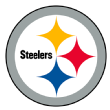
Pittsburgh Steelers
Best pick: WR Antonio Brown. This one's not debatable. The 195th overall selection in 2010 might be the NFL's best sixth-round pick, save Tom Brady. Drafting in the sixth round requires a level of luck, but the Steelers deserve credit for ranking Brown as a top-three-round talent in 2010. Brown overcame questions about his size and speed with rare playmaking gifts. His presence quickly re-imagined the Steelers' offense and gave quarterback Ben Roethlisberger a partner in a historic touchdown tandem.
Worst pick: CB Senquez Golson. The Steelers rarely whiff on top-60 picks. Golson, a second-rounder in 2015 (56th overall), didn't play a down for Pittsburgh and rarely practiced because of foot, shoulder and hamstring injuries. The team released him before the 2017 season, a widely expected move. The investment in Golson was supposed to lift a struggling secondary but instead set it back. The team's previous second-round picks -- Le'Veon Bell and Stephon Tuitt -- became cornerstones. -- Jeremy Fowler
AFC SOUTH
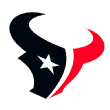
Houston Texans
Best pick: DE J.J. Watt. Texans fans booed on draft night when Houston took Watt with the No. 11 pick in 2011, but he has been the best pick in franchise history by far. Although Watt has played in only eight games over the past two seasons, he and Lawrence Taylor are the only players in NFL history to be named the NFL's Defensive Player of the Year three times.
Worst pick: G Xavier Su'a-Filo. The Texans have hit on the majority of their first-round picks in the past 10 years, but their worst draft pick during that span almost fell in that category. Su'a-Filo was taken with the first pick in the second round (No. 33 overall) in 2014. Su'a-Filo struggled in his four years in Houston and was infamously taken three picks before Derek Carr. The Texans did not re-sign Su'a-Filo after his rookie deal was up this offseason. -- Sarah Barshop
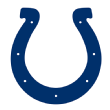
Indianapolis Colts
Best pick: QB Andrew Luck. The No. 1 overall pick in the 2012 draft immediately stepped in as Peyton Manning's replacement and led the Colts to two AFC South titles and the playoffs in each of his first three seasons, including the AFC Championship Game in 2014. Luck, who has been injured most of the past three seasons, joined Manning and Dan Marino as the only quarterbacks to pass for at least 4,000 yards in each of their first two seasons.
Worst pick: LB Bjoern Werner. The 24th overall pick in the 2013 draft didn't even reach the fourth year of his rookie contract before finding his way out of the NFL. Werner failed to make the transition from a pass-rushing defensive end at Florida State to a pass-rushing linebacker in the NFL. Werner eventually was moved to weakside linebacker. That didn’t work, either, as the Colts released him after the 2015 season. Werner never played another down in the NFL, as he finished his short career with 58 tackles and 6.5 sacks in three seasons. -- Mike Wells
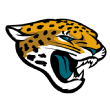
Jacksonville Jaguars
Best pick: CB Jalen Ramsey. The fifth overall selection in 2016 already has established himself as one of the NFL's best cover corners and drawn comparisons to Hall of Famer Deion Sanders. The Jaguars have used Ramsey on the opponent's best receiver, and he has shut down T.Y. Hilton, DeAndre Hopkins, A.J. Green, Amari Cooper, Keenan Allen and Larry Fitzgerald, among others. He has a rare combination of size (6-foot-1, 208 pounds), speed (4.41 in the 40 at the combine) and physicality to match up against different types of receivers. Hilton (5-foot-10, 183) is smaller and quicker than Green (6-foot-4, 205) and Fitzgerald (6-3, 225), for example, but Ramsey is able to adapt to play each equally well. He made the Pro Bowl and was a first-team All-Pro in his second season, and there are many inside the organization that believe he could be the best defensive player in franchise history.
Worst pick: WR Justin Blackmon. DE Derrick Harvey (2008) and QB Blaine Gabbert (2010) were huge busts because they didn't have the talent to become the big-time players the Jaguars believed they would. However, Blackmon (fifth overall in 2012) clearly did have the talent to be one of the NFL's best receivers, but his off-the-field behavior (four alcohol/drug arrests, as well as a failed drug test that resulted in an indefinite suspension since November 2013) derailed a promising career. He played in only 20 games, catching 93 passes for 1,280 yards and six TDs. -- Mike DiRocco
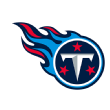
Tennessee Titans
Best pick: Chris Johnson. CJ2K boomed onto the scene after the Titans took him with the 24th overall pick in the 2008 draft. He earned three consecutive Pro Bowl trips and ran for more than 1,000 yards in each of his six seasons in Tennessee. He had one of the best seasons ever by a running back in 2009 when he rushed for 2,006 yards, set the record for most yards from scrimmage (2,509), and won Offensive Player of the Year.
Worst pick: Jake Locker. The top two contenders (Locker, Bishop Sankey) came from University of Washington, but Locker is the pick because he was supposed to be the franchise QB after going eighth overall in the 2011 draft. Tyron Smith and J.J. Watt were drafted ninth and 11th, respectively. Injuries overran Locker's career, and he started just 23 games. He played poorly when he was healthy, completing 57.5 percent of his passes. He retired after four years, citing a lack of desire. -- Cameron Wolfe
AFC WEST
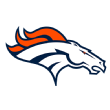
Denver Broncos
Best pick: LB Von Miller. The Broncos took Miller with the second pick of the 2011 draft. He totaled 30 sacks in his first two seasons, but was suspended for the first six games of the 2013 season for violating the league's substance-abuse policy and suffered a torn ACL late that year. He has not missed a game since then and is a six-time Pro Bowl selection, a three-time first-team All-Pro selection and has been a Super Bowl MVP. He is a foundation player for the Broncos and one of the league's best with 83½ sacks in 104 games.
Worst pick: CB Alphonso Smith. It's not just the fact that things didn't work out for Smith after the Broncos made him a second-round pick in the 2009 draft, but the circumstances around the selection. The Broncos traded a 2010 first-round pick to select Smith 37th overall in the first place. But the Broncos then decided they didn't like how Smith fit their defense. He played sparingly in 15 games as a rookie and was then traded to the Detroit Lions in 2010 in exchange for Dan Gronkowski, who had all of eight catches in his one season with the Broncos. Oh, and that first-round pick the Broncos sent to the Seattle Seahawks to draft Smith in the first place? Seattle used it to select Earl Thomas. -- Jeff Legwold
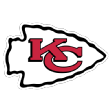
Kansas City Chiefs
Best pick: RB Jamaal Charles. The Chiefs drafted Charles in the third round (73rd overall) in 2008 thinking he might develop into a nice change-of-pace running back, but Charles turned out to be a lot more. He played nine years with the Chiefs, leaving after the 2016 season as the team's all-time leading rusher with 7,260 yards.
Worst pick: WR Jonathan Baldwin. The Chiefs' first-round pick (26th overall) in 2011 lasted just two seasons in Kansas City, catching 41 passes and scoring two touchdowns. The Chiefs traded him in 2013 to San Francisco, where he caught three passes in his final NFL season. -- Adam Teicher
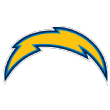
Los Angeles Chargers
Best pick: DE Joey Bosa. Taken with the No. 3 overall pick in the 2016 draft out of Ohio State, Bosa has been one of the NFL's most productive pass-rushers since entering the league. In his first 20 games, Bosa totaled 19 sacks -- the most in league history in the first 20 games of a career. Since the start of the 2016 season, Bosa's 23 sacks rank No. 4 in the league.
Worst pick: DE Larry English. Selected No. 16 overall in the 2009 draft out of Northern Illinois, English never lived up to lofty expectations, totaling just 11 sacks in five seasons with the Chargers. He was eventually released and played for the Tampa Bay Buccaneers in 2014, posting one sack in his final season in the league. -- Eric D. Williams
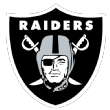
Oakland Raiders
Best pick: LB Khalil Mack. If the Bills are still kicking themselves for allowing Mack, who starred at the University of Buffalo, to slip out of their backyard in 2014, the Raiders are still thanking them for allowing Mack to fall to them at No. 5 overall. Mack, who is in line for a $100 million contract extension, is a foundation piece in Oakland who also should excel in Las Vegas. In 2015, Mack made NFL history as the first player to be named first-team All-Pro at two positions (outside linebacker and defensive end) in the same season. He was the NFL Defensive Player of the Year in 2016. And Mack has at least 10.5 sacks in three consecutive seasons.
Worst pick: LB Rolando McClain. The No. 8 overall pick in 2010, McClain was the reigning Butkus Award winner out of Alabama as the best linebacker in college and was supposed to shore up Oakland's defense as the franchise's middle linebacker for a decade. Instead, he became a cautionary tale and a punchline, or have you forgotten McClain's grinning visage as he was being placed in a police car in 2011? Attitude problems prevailed, and by the time McClain's time in Oakland came to an end after the 2012 season, he had been reduced to playing the role of scout-team fullback in practice. -- Paul Gutierrez
NFC EAST
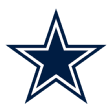
Dallas Cowboys
Best pick: C Travis Frederick. The Cowboys were lambasted by many when they traded down from No. 18 in the first round of the 2013 draft for the 31st and 74th picks. They were criticized more when they took Frederick in the first round, with some calling him a third-day pick. All he has done is start every game in his first five years and been named to the Pro Bowl the past four seasons. Trading up for Dez Bryant in the first round in 2010 worked out well. Finding Dak Prescott in the fourth round in 2016 was a great pick, but it is still early in his career. Frederick, however, is viewed as one of the best at his position in the NFL as he grows into his prime.
Worst pick: CB Morris Claiborne. In 2012, the Cowboys gave up their first- and second-round picks to the St. Louis Rams to take Claiborne with the sixth overall selection. The Cowboys had Claiborne graded as their best defensive back since Deion Sanders. Injuries prevented Claiborne from playing a full 16-game schedule in his five seasons with the team, and he recorded just four interceptions in Dallas. Given the price paid to get him and the little return on investment, Claiborne stands out above the bunch. -- Todd Archer

New York Giants
Best pick: WR Odell Beckham Jr. The 12th overall pick in the 2014 draft is the best player on the Giants and the only player remaining from their 2014 draft class. Beckham set records with 288 catches, 4,122 yards and 35 touchdowns in his first three seasons. That included 91 catches, 1,305 yards and 12 touchdowns in just 12 games his rookie year.
Worst pick: LT Ereck Flowers. The Giants haven't gotten much of anything from their third-round picks (Damontre Moore, Jay Bromley, Owa Odighizuwa, Darian Thompson and Davis Webb) -- but they were third-round picks. Flowers was the ninth overall pick in 2015, and the Giants just spent $62 million to make sure he doesn't start at left tackle. Flowers has been among the league's worst left tackles in each of his first three professional seasons. It has hampered the Giants' offense and set the franchise back. -- Jordan Raanan

Philadelphia Eagles
Best pick: QB Carson Wentz. The Eagles moved up twice in the 2016 draft to select Wentz No. 2 overall. It has proved to be a franchise-altering decision. Wentz had an MVP-level season before injuring his ACL in December, helping the Eagles secure a 13-3 record and home-field advantage throughout the playoffs to set up the team's Super Bowl run. The front office believes they will be in position to compete for years to come now that their quarterback position is solidified.
Worst pick: OLB/DE Marcus Smith II. It felt like a reach at the time when the Eagles selected the pass-rusher out of Louisville with the 26th overall pick in the 2014 NFL draft, and that proved to be the case. Smith struggled to carve out a significant role during his time in Philadelphia, totaling just four sacks in three seasons with the Eagles. Smith appeared to find his footing a bit with the Seahawks last season, but that doesn't do the Eagles much good. -- Tim McManus

Washington Redskins
Best pick: LT Trent Williams. He was the fourth overall pick in 2010, so he should be good. But they had a choice between Williams and Russell Okung, who went two spots later to Seattle. Williams has long been an elite player, with six Pro Bowl berths and twice being named All-Pro. Williams' athleticism enables the Redskins to expand their playbook.
Worst pick: WR Malcolm Kelly. It wasn't just about the fact the 2008 second-rounder didn't produce (28 career receptions, no touchdowns in two years). It's that the Redskins were warned about his knees and how he might not even be able to practice much. Yet, they were desperate for big receivers so they still chose the 6-foot-4 Kelly No. 51 overall. His career ended because of knee issues. -- John Keim
NFC NORTH
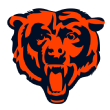
Chicago Bears
Best pick: RB Matt Forte. The second-round pick in 2008 is the second-most productive tailback in Bears history. Forte amassed 8,602 rushing yards and 4,116 receiving yards over his decorated eight-year run in Chicago. Forte, who was named to two Pro Bowls, led the NFL in yards from scrimmage from 2008-15. Forte played the past two seasons for the New York Jets but announced last month that he intends to sign a one-day contract in the offseason and retire as a Chicago Bear.
Worst pick: WR Kevin White. The Bears have missed on several high draft picks over the past 10 years -- Chris Williams, Gabe Carimi and Shea McClellin, to name a few -- but White, the seventh overall choice in 2015, has appeared in just five regular-season games because of an assortment of injuries. White has only 21 career catches for 193 yards and zero touchdowns. -- Jeff Dickerson
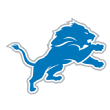
Detroit Lions
Best pick: QB Matthew Stafford. The No. 1 overall pick in 2009 has given Detroit stability at the most important position in the game and set NFL records while doing so. In an era when teams that have quarterback uncertainty have often floundered, that's the one spot the Lions have continuously felt good about for most of the past decade -- and likely until 2022, when his contract runs out.
Worst pick: TE Eric Ebron. This selection (No. 10 overall in 2014) has little to do with what Ebron ended up doing for the Lions (production that was in the top 15 of tight ends the past two seasons) and more about who Martin Mayhew and Jim Caldwell could have taken instead. Six of the next seven picks after Ebron have been to at least one Pro Bowl -- including players at positions of need for Detroit at the time (LT Taylor Lewan, OL Zack Martin, LB C.J. Mosley, WR Odell Beckham Jr. and DT Aaron Donald), while the Lions didn't have a glaring need at tight end. While Detroit had worse talent/production picks than Ebron (Jahvid Best, Titus Young, Mikel Leshoure, Ryan Broyles and Laken Tomlinson), the wonder of what could have been with the Lions is what makes the selection of Ebron the roughest over the past 10 years. -- Michael Rothstein
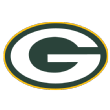
Green Bay Packers
Best pick: LB Clay Matthews. Former GM Ted Thompson didn't trade up often, but his move back up into the first round in the 2009 draft to take Matthews at No. 26 helped build the foundation for the Super Bowl team of 2010. In fact, Matthews made one of the biggest plays of Super Bowl XLV when he forced a fumble in the fourth quarter. He became the Packers' career sack leader last season and despite some nagging injuries over the years has been one of the most effective pass-rushers of his era. Left tackle David Bakhtiari (a fourth-rounder in 2013) and receiver Davante Adams (second round, 2014) have strong cases as well.
Worst pick: DE Datone Jones. When the Packers picked him 26th overall in the 2013 draft, the defensive end from UCLA compared himself to Reggie White. He's only 188 sacks shy of White. Jones posted just nine sacks in four seasons with the Packers; his career high of 3.5 came as a rookie. He has added just one more sack in seven games with two teams (Dallas and San Francisco). He's still on the Cowboys' roster but has no guaranteed money for 2018 and would make the NFL minimum if he's on the team. He's the pick over 2011 first-rounder Derek Sherrod, a tackle who made just one NFL start and is out of the league. Sherrod's career path can be blamed, at least in part, on a horrific broken leg as a rookie. Jerel Worthy, a 2012 second-round pick, also could be in the conversation. -- Rob Demovsky

Minnesota Vikings
Best pick: S Harrison Smith. The 29th overall pick in the first round of the 2012 draft, Smith has been a foundation piece in Minnesota's secondary since his rookie year. Widely considered not only the best safety, but one of the best players in the NFL, Smith put together perhaps his best season in 2017. Smith earns this designation because he is without a doubt an irreplaceable piece of Mike Zimmer's vaunted defense.
Worst pick: QB Christian Ponder. Desperate to fix their quarterback situation, the Ponder selection (12th overall in 2011) set Minnesota back at least five years. The Vikings traded for Donovan McNabb in July 2011 to take pressure off their rookie QB, but McNabb's dismal performance forced Ponder into the spotlight six weeks into a season where he won two games. He bounced back in 2012 with the Vikings going 10-6 and making the playoffs, but won three games after that and eventually was benched in favor of another first-round pick -- Teddy Bridgewater -- in 2014. He finished his time in Minnesota with a 14-21-1 record as a starter, throwing 38 touchdowns and 36 interceptions. -- Courtney Cronin
NFC SOUTH
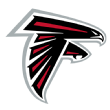
Atlanta Falcons
Best pick: WR Julio Jones. The five-time Pro Bowler is arguably the best wide receiver in the game, when healthy. Jones, the sixth overall pick in 2011, has posted four consecutive 1,400-plus yard seasons and has surpassed 1,000 receiving yards in five of his seven seasons. His 9,054 career receiving yards is second on the franchise's all-time list behind Roddy White (10,863). Matt Ryan (third overall, 2008) deserves strong consideration too, as he has an MVP award to his credit, but Jones has made life that much easier on Ryan.
Worst pick: OL Peter Konz. Konz was the team's first pick in the 2012 draft (second round, No. 55 overall) after the Falcons surrendered their first-rounder in the Julio Jones trade. Konz started 28 of the 39 games he played in over three seasons but had very little impact. He tore his ACL during the 2014 season after playing just 174 offensive snaps and eventually was let go by the team with an injury settlement. Konz never played with great strength and often got pushed around. He didn't play well at center or guard and was replaced at both spots during his short career. -- Vaughn McClure
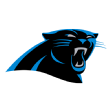
Carolina Panthers
Best pick: QB Cam Newton. You could make an argument for LB Luke Kuechly at No. 9 overall in 2012; he's on his way to a Hall of Fame career. But Newton, the No. 1 overall pick in 2011, is as well. He has set the standard for Carolina quarterbacks and for running quarterbacks in the NFL, period. He was the 2011 NFL Offensive Rookie of the Year and the 2015 NFL MVP. He’s a three-time Pro Bowl selection. He's rewriting the record books in terms of rushing touchdowns for a quarterback.
Worst pick: QB Jimmy Clausen. Carolina traded its 2009 first-round pick to San Francisco to get DE Everette Brown in the second round. That was bad enough. Brown had only six sacks and three starts in two seasons with the Panthers. But Clausen, a second-rounder in 2010, gets the nod because the former Notre Dame star was billed as the answer at quarterback. The 48th overall selection went 1-9 as a rookie, throwing only three touchdowns to nine interceptions. He was so bad that Carolina used the No. 1 pick of the 2011 draft on Newton. -- David Newton
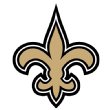
New Orleans Saints
Best pick: TE Jimmy Graham. RB Alvin Kamara and CB Marshon Lattimore have a chance to overtake him after the Saints became the first team to sweep the NFL Offensive and Defensive Rookie of the Year awards in 50 years in 2017. And 2016 second-rounder Michael Thomas could do the same. But don't forget how dominant Graham was at his peak (99 catches for 1,310 yards and 11 touchdowns in 2011; 86-1,215-16 in 2013). And Graham was picked 95th overall as a converted basketball player out of Miami, while Lattimore was picked 11th, Thomas 47th and Kamara 67th. The Saints cut bait early on Graham when they traded him in 2015, but they got centerpiece center Max Unger and a first-round draft pick in return.
Worst pick: CB Stanley Jean-Baptiste. This is a runaway, landslide choice -- even though it was hard to blame the Saints for their thinking at the time. Jean-Baptiste was a big, long, 6-foot-3, 218-pounder who fit the mold of the Seahawks' defensive backs that were becoming all the rage in the NFL -- so much so that the converted wide receiver was getting some pre-draft mentions as a dark horse first-round pick before the Saints took him late in Round 2 at No. 58 overall. But he never developed. He was active for only four games as a rookie with no defensive statistics before being cut the next summer. Jean-Baptiste has bounced around the NFL ever since, but he has appeared in only one more game (with the Ravens in 2017). -- Mike Triplett
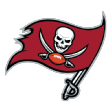
Tampa Bay Buccaneers
Best pick: DT Gerald McCoy. The third overall pick in the 2010 draft, McCoy hasn't always had a strong supporting cast around him. In fact, he has never been to the playoffs but has still managed to become one of the premier defensive tackles in the league, reaching six consecutive Pro Bowls from 2012-2017. His 39.5 sacks are most among NFL defensive tackles since 2013 and he has 48.5 for his career.
Worst pick: WR Dexter Jackson. The Bucs made the Appalachian State wide receiver their second-round draft pick in 2008, when he was, at best, a fourth-round pick. In fact, the Bucs had a fourth-round grade on him, but they panicked when there was a run on wide receivers and both Donnie Avery and DeSean Jackson had come off the board in the second round. That made Jackson, who clocked a 4.27 at the combine that year, the only remaining speed guy available as a needed replacement for the aging Joey Galloway. Jackson struggled catching the ball and made it through only seven games. He was waived during training camp the following year. -- Jenna Laine
NFC WEST
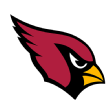
Arizona Cardinals
Best pick: CB Patrick Peterson. Arizona selected him fifth overall in 2011. He has gone to seven consecutive Pro Bowls and established himself as one of the premier cornerbacks in the NFL, giving Arizona a defensive and franchise cornerstone to build around.
Worst pick: G Jonathan Cooper. The seventh overall pick in 2013, Cooper didn't make it to the third year of his rookie contract before he was traded by the Cardinals. He broke his leg during the preseason as a rookie and struggled to return to the player he was for the rest of his short time in Arizona. -- Josh Weinfuss
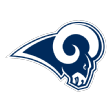
Los Angeles Rams
Best pick: DT Aaron Donald. The Rams drafted him 13th overall in 2014, even amid concerns that he was too small to become a legitimate interior lineman. All Donald has done since is establish himself as one of the game's best defensive players, one who should soon become the richest defensive player in NFL history.
Worst pick: T Greg Robinson. That's right -- the Rams' best and worst draft picks occurred the same year. Robinson, a physical specimen coming out of Auburn, was thought to be the next great left tackle. But he struggled mightily after being drafted second overall, prompting the Rams to get rid of him after just three seasons. -- Alden Gonzalez
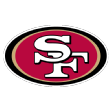
San Francisco 49ers
Best pick: LB NaVorro Bowman. Taken No. 91 overall in 2010, Bowman turned into a franchise cornerstone who was at the center of the team's three-year run of NFC Championship Game appearances from 2011-2013. Bowman was one of four players in Niners history to earn four first-team All-Pro honors, finishing with 709 tackles, 12.5 sacks and four interceptions in seven-plus seasons with the team.
Worst pick: WR A.J. Jenkins. The Niners selected Jenkins with the 30th pick in the 2012 draft in hopes he could push a Super Bowl-contending team over the top. Instead, Jenkins became one of the biggest flops in 49ers history. He appeared in just three games with one target as a rookie and the Niners traded him to Kansas City after that lone season. -- Nick Wagoner
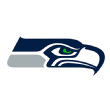
Seattle Seahawks
Best pick: Russell Wilson. The Seahawks made several home run picks in the 2010-12 drafts, but Wilson was the best of the bunch. He might actually be the best draft pick in franchise history. Finding a Super Bowl-winning, MVP-caliber quarterback in the third round -- as Seattle did in 2012 -- makes him an easy call for the best in the past decade. Honorable mention goes to Earl Thomas (first round, 2010), Richard Sherman (fifth round, 2011), Kam Chancellor (fifth round, 2010) and Bobby Wagner (second round, 2012).
Worst pick: Aaron Curry. Defensive tackle Malik McDowell, last year's second-round pick, will be the first name that comes to mind for many after he suffered injuries in an ATV accident that prevented him from playing as a rookie (and possibly beyond). But Curry gets the nod here. In fairness to then-team president Tim Ruskell, Curry was considered a can't-miss prospect. He turned out to be a massive miss after the Seahawks chose the linebacker fourth overall in 2009. Curry was ineffective his first two seasons, got benched and then traded in 2011 and was out of the NFL by 2013. -- Brady Henderson
































